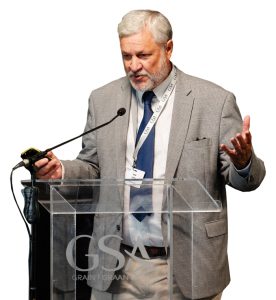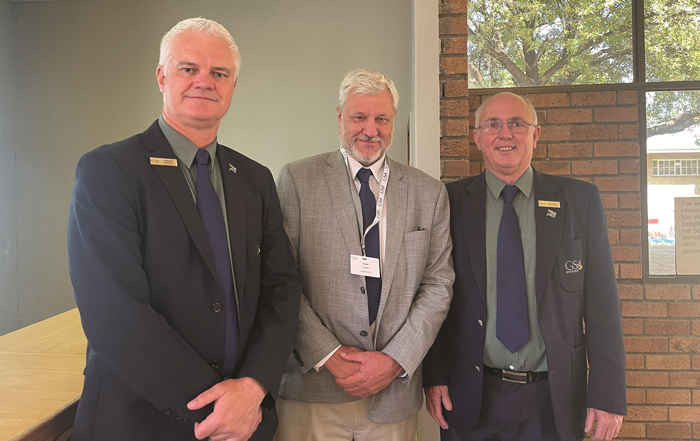The reality that producers face challenges is a universal phenomenon spanning continents – a fact that was once again underscored at the 2024 Congress of Grain SA.
Keynote speaker David Hughes, vice-president of the International Farm Management Association of Argentina, elucidated South African producers regarding the shared points of interest between them and their Argentine counterparts, particularly concerning challenges in the agricultural sector in both countries.
With a family legacy spanning 150 years in agriculture, Hughes currently owns two farms in the Buenos Aires region where maize, soybeans and wheat are cultivated. He has extensive expertise as a farm manager and consultant in Argentina and is an active member of AACREA, an Argentine farmers group dedicated to benchmarking, testing new technology and enhancing agricultural business practices.

Additionally, he is a partner and president of Traulen Co SA, a farm management and consulting firm offering various services, including accounting, tax accounting, managerial accounting and managerial services.
Hughes is also a founding member and current president of Argen Trigo, the Argentine wheat chain association, where the representatives of research, input companies, producers, flour mills, exporters, brokers, future markets, and other related services work on long-term strategies for the industry.
Resilience
He emphasised the resilience and innovation of producers, citing the adaptive strategies Argentine producers have implemented in response to challenges such as inflation, high export taxes (up to 31% on soybeans), poor infrastructure, and currency devaluation.
Attendees were surprised to learn that on the day of Hughes’s address (12 March), the Argentine Reserve Bank had cut the repo rate by 20%. ‘In my lifetime, I have seen the Argentine peso losing 13 zeros,’ he said, referring to the government devaluating the peso. ‘I do not like the peso, I try to create my own money – in the shape of maize, soybeans and wheat.’
Transport costs pose another significant challenge, with expenses to harbours sometimes reaching up to 25% of the produce’s value. Fortunately Argentine harbours are privatised and efficient.
‘As Argentinian producers we realise that we have to help one another to survive.’ Strategies these producers have put in place to assist them in saving costs include the following:
- Producers unite to form research and study groups, and share knowledge. ‘The more knowledge we have, the better we are aligned to face challenges and remain resilient.’
- As all Argentinian banks are government-owned, producers approach private investors to invest for a percentage of the yield. Producers also attempt not to get financing from banks.
- The use of silo bags, which allows for better bargaining power.
- No-till conservation farming, and the planting of cover crops.
- Planting later or earlier than the norm.
- Informing government and politicians about the challenges producers face in order for them to make better decisions.
- Producers in general do not own machinery and implements – contractors are used for anything from harvesting to spraying.
- Gathering and keeping as much information as possible.
There are notable parallels between South Africa and Argentina, including a lack of leadership and poor institutional support. Hughes stressed the importance of collaborative problem-solving among peer groups to address these challenges effectively.




















